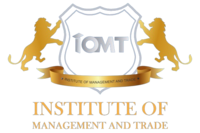
How do I become a welding instructor?
Certificate III in Engineering - Fabrication Trade
- There are no mandated entry requirements.








Certificate IV in Training and Assessment
- Evidence of relevant skills, knowledge and employment experience


Advanced Diploma of Mechanical Engineering Technology
- There are no mandated entry requirements.
 Engineering Institute of Technology
Engineering Institute of Technology
Certificate IV in Engineering
- There are no mandated entry requirements.








Certificate III in Engineering - Mechanical Trade
- There are no mandated entry requirements.








Bachelor of Engineering Technology (Mechanical and Manufacturing)
- There are no mandated entry requirements.
 Chisholm Institute
Chisholm Institute
Related occupations
Apprentice Engineer
An Apprentice Engineer trains in creating and maintaining machinery parts, uses various tools, and must follow instructions, work in teams, and be adaptable.
Engineering Tradesperson
An Engineering Tradesperson creates and maintains parts for construction projects, using various tools and machinery while managing multiple projects effectively.
Blacksmith
A Blacksmith shapes metal using heat, creating new pieces or repairing existing ones with tools and machinery, while ensuring safety and detail.
Boilermaker
A Boilermaker fabricates and repairs metal parts using technical drawings, employing skills in welding, bolting, and riveting while ensuring safety.
Welder
A Welder joins metal parts using heat, creating new items or repairing structures, requiring strong skills, attention to detail, and teamwork.
TIG Welder
A TIG Welder uses gas tungsten arc welding to join metal, often interpreting technical drawings and working in diverse industries like construction.
Metal Worker
A Metal Worker fabricates parts from metals like steel and aluminium, cutting, shaping, assembling, and installing them according to specifications.
Sheet Metal Worker
A Sheet Metal Worker cuts, shapes, and designs metal components using hand tools or machinery, requiring strong technical skills and attention to detail
Fabricator
A Fabricator constructs and repairs metal parts using various techniques, requiring strong technical skills and adherence to safety guidelines.
Common questions
How much does a Welding Instructor earn?
In Australia, a full time Welding Instructor generally earns $1,498 per week ($77,896 annual salary) before tax. This is a median figure for full-time employees and should be considered a guide only. As you gain more experience you can expect a potentially higher salary than people who are new to the industry.
What are the job opportunities for a Welding Instructor?
The number of people working in this job role has remained stable over the last five years. There are currently 35,000 people working as a vocational education teacher in Australia and a small number of them specialise as a Welding Instructor. Welding Instructors may find work across all regions of Australia.
Source: Australian Government Labour Market Insights
How do I become a Welding Instructor?
If you’re interested in becoming a Welding Instructor, consider enrolling in a Certificate IV in Engineering (Welding). This course covers metallurgy principles as well as practical skills such as gas tungsten arc welding, flux core arc welding and pipe welding. A Certificate IV in Engineering may also be appropriate.
Further reading


Choosing a security licence course in Australia: A step-by-step guide for jobseekers
10th November 2023)

